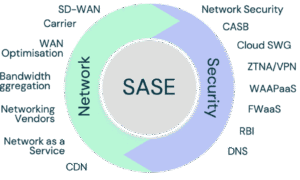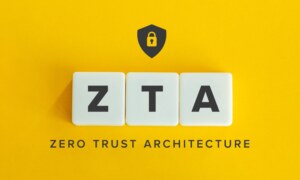By 2025, your digital identity is more than just a login or profile picture—it’s your online habits, preferences, behavior, and even your health data. But as our lives become more digital, the question remains: who owns your data? From Big Tech to governments, it seems everyone is collecting, storing, and analyzing our personal information. In this article, we’ll take a deep dive into the world of digital identity, explore the privacy issues surrounding it, and discuss who truly has control over our most valuable asset—our data.
Table of Contents
Introduction
In 2025, the concept of digital identity is everywhere. It’s in every app you use, every website you visit, and every device you interact with. Your digital self is shaped by everything from your social media posts and shopping habits to how you browse the internet and even how you talk to your virtual assistant.
But here’s the catch: You probably don’t own most of it.
Tech companies like Google, Facebook (Meta), and Amazon hold vast amounts of data about you—data you created but don’t have full control over. The question we need to ask is: How much of this information is truly ours, and how much is someone else’s?
What Is Digital Identity, Really?
When we talk about “digital identity,” it sounds like a simple concept, but it’s actually quite complex. Your digital identity isn’t just the username and password you use to log into a site. It’s everything that makes you, well, you, online.
This includes:
- Login information (your email address, usernames, and passcodes)
- Biometric data (your face, fingerprints, and voice)
- Behavioral data (what you click on, how long you stay on a page, and your scrolling habits)
- Location and social media data (where you check in, who you interact with, what you post)
- Health and financial data (if you use fitness apps, banking apps, etc.)
All of this information forms a digital footprint that companies, governments, and even advertisers are collecting. But who’s really in charge of it? Let’s break it down.
Who Owns Your Data? Let’s Take a Look
In today’s digital landscape, ownership is murky. Let’s explore who’s in control of your data:
1. Big Tech Companies
The giants—Google, Meta (Facebook), Amazon, and others—collect vast amounts of data every time you search something, interact with ads, or even just browse through a website. They build comprehensive profiles on you and use that information to serve targeted ads, recommend products, or track your behavior.
Even when you think you’re just using a “free” app or service, you’re paying for it in ways that aren’t always obvious. These companies use your data to build their empire, and your privacy? Well, it takes a backseat.
2. Governments
From digital IDs to surveillance programs, governments collect personal data in ways that often go unnoticed. In some countries, citizens are required to have a digital identity tied to government services like healthcare, tax filings, and voting. While some argue that this makes services more efficient, it raises questions about privacy and the potential for government overreach.
3. Third-Party Data Brokers
These are the companies you’ve likely never heard of, but they know everything about you. They collect, buy, and sell data to various clients—advertisers, insurance companies, even political organizations. They aggregate public records, online behavior, and purchase history to create detailed profiles. You’ve probably never interacted with these brokers directly, but they know you better than you might think.
4. You (Sometimes)
There are some legal protections in place now, like GDPR in Europe or CCPA in California, that give you more control over your data. These laws require companies to be more transparent about what they collect and how they use it. But in practice, many people still don’t know how to fully exercise their rights to access, delete, or even control their data.
The Problem With a Disconnected Digital Identity
Here’s the real issue: your digital identity is scattered. It’s not one cohesive thing that you control; it’s a collection of fragments across countless companies, apps, and websites.
- Data breaches are becoming more common, and they’re exposing sensitive personal information.
- Identity theft is easier than ever because companies have so much data about you.
- Surveillance capitalism continues to thrive, as companies profit off your data without giving you much in return.
This fragmented system makes it harder for you to protect your privacy, and as a result, you end up feeling powerless.
The Future: Decentralized Digital Identity
While the current system may seem broken, there’s a shift happening toward a decentralized future. In this new paradigm, you will be the one in charge of your digital identity. How?
- Self-Sovereign Identity (SSI): This is the idea that you control your digital identity without relying on third parties. Using blockchain technology, SSI allows you to store your credentials (like your driver’s license or health records) securely and privately, and share only what’s necessary, when it’s necessary.
- Decentralized Identifiers (DIDs): DIDs allow individuals to create and manage their own unique digital identifiers, enabling verifiable claims about their identity without centralized authority.
- Verifiable Credentials: Imagine a system where you could prove your identity, age, or qualifications without sharing every detail. Using DIDs and SSI, you could verify just the information needed—without giving away unnecessary personal details.
What Can You Do Right Now?
While we wait for the full shift to decentralized identities, there are steps you can take today to protect your digital self:
- Use a password manager to securely store your login details and avoid using the same password everywhere.
- Enable two-factor authentication (2FA) on your accounts to add an extra layer of security.
- Audit your app permissions regularly. Check which apps have access to your location, contacts, and other personal information—and revoke access where it’s unnecessary.
- Use privacy tools like a VPN, encrypted messaging apps (Signal, Telegram), and privacy-focused search engines (DuckDuckGo).
- Take control of your data with tools that help you delete old accounts and requests for data erasure (like using GDPR rights if you’re in Europe).
Conclusion: Who Really Owns Your Digital Self?
In the digital age, your data is your identity, and that’s something worth protecting. While Big Tech and governments may have the upper hand now, there’s hope on the horizon. Decentralized systems, where you control your data, are becoming more realistic every day.
But for now, it’s up to you to take charge. Use the tools available, stay informed, and continue to ask the hard questions about who owns your digital self. Your data, your life, your rules.
Read More: Beyond Avatars and Simulations: What a Digital Twin Really Means in Education




